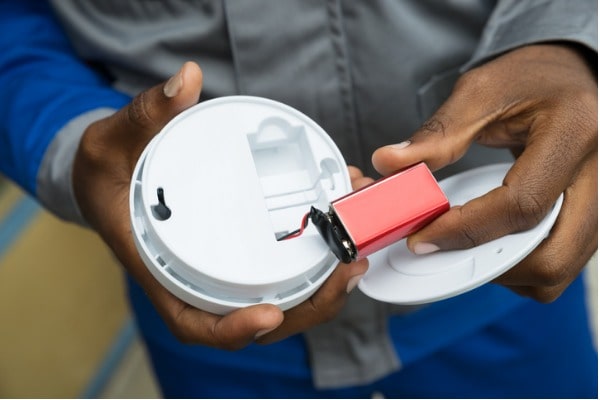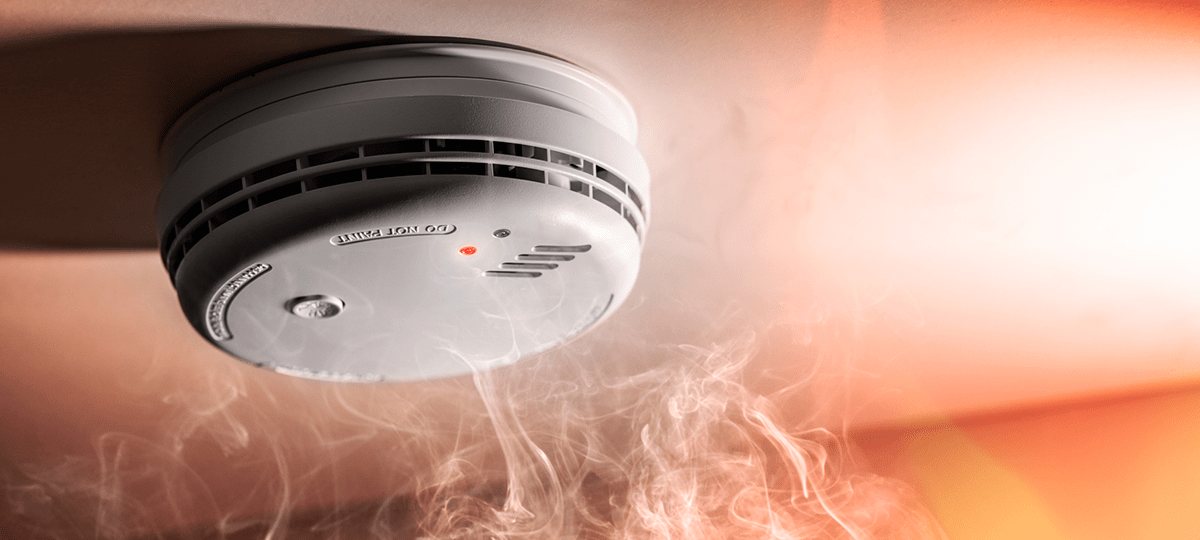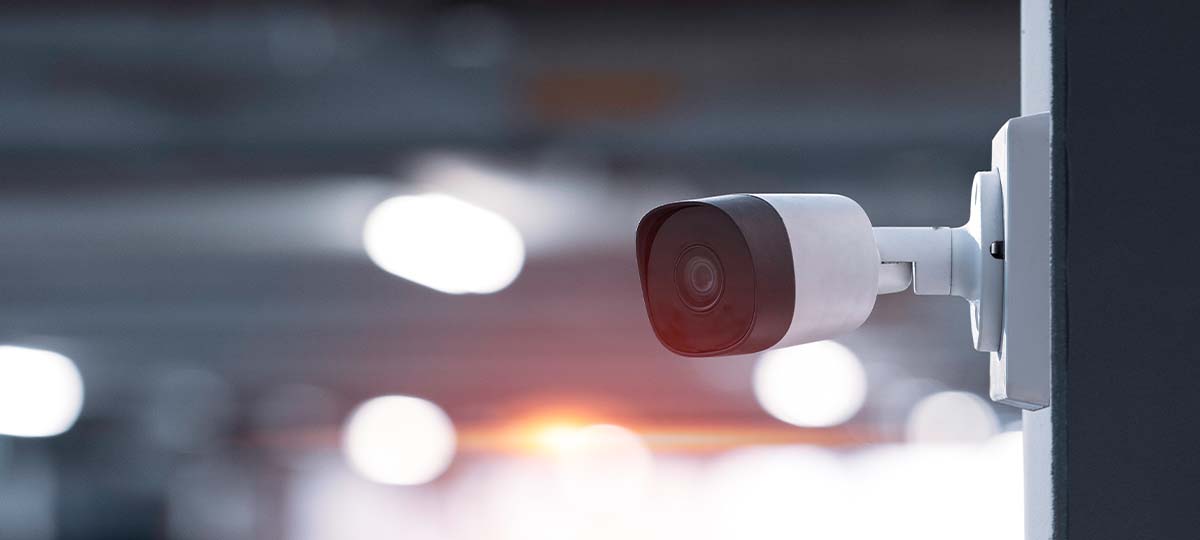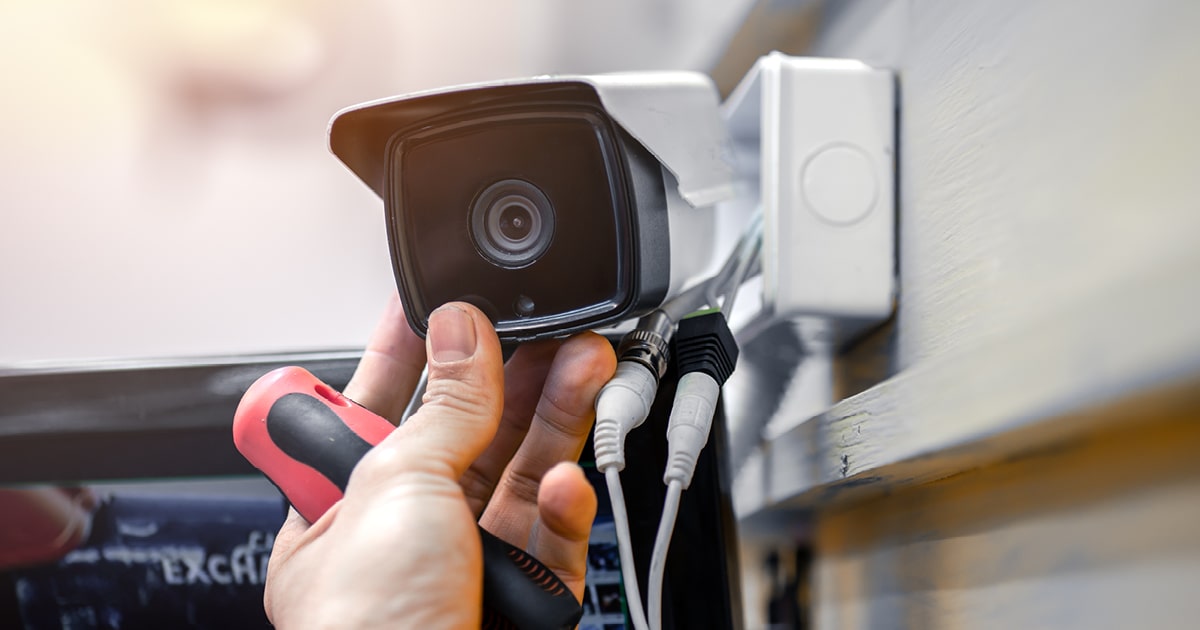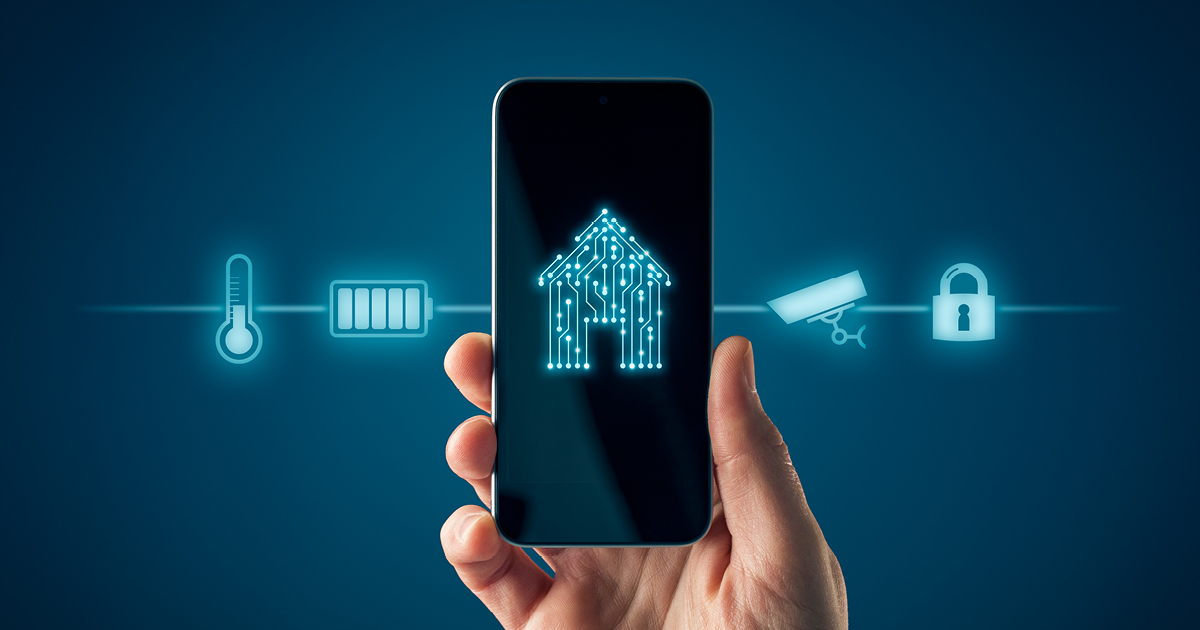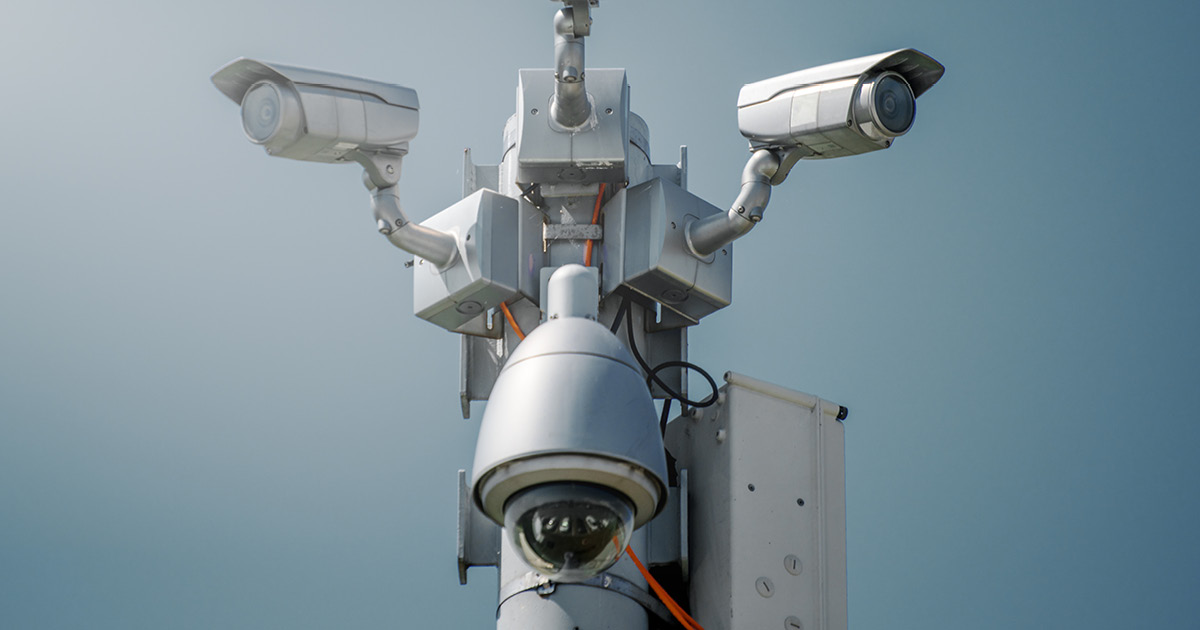Where Should Smoke Detectors Be Placed?
Smoke Detector Placement
Fire can spread extremely fast. In just minutes, a building can be fully engulfed in flames. Smoke detectors are critical to give people inside homes and commercial buildings early warnings so they have time to get out. Proper smoke detector placement is also key when it comes to keeping your home or business safe.

Residential Smoke Detector Placements
At a minimum, The National Fire Protection Agency (NFPA) recommends that smoke detectors be placed:
- Inside every sleeping room
- Outside every sleeping room
- On every level of your home, including the basement
Additionally, the NFPA recommends the installation of smoke alarms near the stairways leading to different levels of your home and at least 10 feet from cooking appliances. The NFPA also suggests interconnecting all smoke alarms, so when one alarm sounds, they all sound. This can be done with hard-wiring or wireless technology. It’s recommended that you test your smoke alarms at least once a month and replace them every 10 years. Dead batteries caused one-quarter (26%) of the smoke alarm failures
There are two types of smoke alarms that are used in residential homes – ionization and photoelectric. For the best protection, a combination ionization-photoelectric warning, known as a dual-sensor smoke alarm, is recommended. Make sure the detector is approved by Underwriters Laboratories (UL), which sets strict testing and safety requirements.
Commercial Smoke Detector Placements
In commercial buildings, the location of smoke detectors are set by the Authority Having Jurisdiction (AHJ). The AHJ is defined as the organization, office, or individual responsible for enforcing the requirements of a code or standard, and for approving equipment, materials, installation, or a procedure.
Fire codes and standards are based on the codes and standards of the NFPA. However, there can be many differences between AHJs in how the codes are enforced and what codes are enforced. Many times, fire alarm systems require the approval of multiple jurisdictions (local, state, and joint commission). There are also federal Occupational Safety and Health Administration (OSHA) regulations and inspections to be considered, and OSHA inspectors can override the local AHJ.
Smoke Detector Testing & Maintenance
Once your smoke detectors are installed, it’s critical to test them regularly and maintain them.
For residential smoke detectors, the NFPA recommends that you:
- Test smoke detectors every month.
- Change the smoke detector batteries every year.
- Replace your smoke detectors every ten years.
For commercial buildings, inspection, testing, and maintenance requirements will also be set by the AHJ. In order to test industrial smoke detectors, you must be certified by the National Institute for Certification in Engineering Technologies (NICET) or licensed by the state.
Smoke Detectors Save Lives
According to data from the NFPA, nearly two-thirds of home fire deaths resulted from fires in homes without smoke detectors or without working smoke detectors. Smoke detectors are one of the most critical parts of a home safety system.
At FSS Technologies, our fire alarm system designers and installers are NICET certified. We understand the nuances of installing fire alarms in most jurisdictions. If your home or business needs a fire safety system, contact us for a free consultation.
